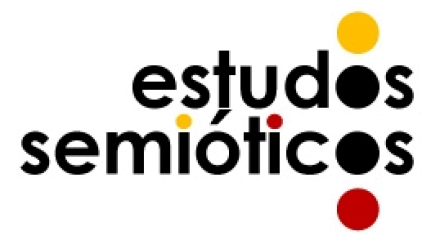Relações intersubjetivas em “extrair”, de Arnaldo Antunes
Estudos Semióticos
Relações intersubjetivas em “extrair”, de Arnaldo Antunes
Autor Correspondente: Paula Martins de Souza | [email protected]
Palavras-chave: semiótica, psicanálise, intersubjetividade, poema
Resumos Cadastrados
Resumo Português:
Este artigo visa a apresentar mecanismos de significação que estão por trás de relações intersubjetivas dos textos. A metodologia empregada tem por base, por um lado, a Semiótica de linha francesa, notadamente as contribuições de Greimas, Zilberberg, Fiorin e Tatit. Por outro lado, a metodologia nutre-se da segunda tópica freudiana e da matriz intersubjetiva de Coelho Jr. e Figueiredo. Greimas contribui com o percurso gerativo do sentido, no plano do conteúdo, além da postulação de sua junção com o plano da expressão. Zilberberg auxilia com a revisão do nível mais abstrato da significação, além da oposição entre os valores de absoluto, de universo, de apogeu e de abismo. Fiorin provê a distinção entre os sujeitos do discurso. Tatit fornece sua praxeologia, que permitirá proceder a uma oposição entre diferentes modos enunciativos de fazer e, com isso, de estatuir o ser do enunciador, além de uma releitura do acontecimento greimasiano. A essas contribuições, acrescento uma oposição entre os campos objetivo e subjetivo, que organiza interações entre tipos diferentes de sujeito. O poema “extrair”, de Arnaldo Antunes, foi escolhido para a demonstração desses mecanismos de significação. Como resultado, a análise possibilitou compreender o arranjo intersubjetivo que está por trás da configuração de sujeito insurgente do narrador do poema.
Resumo Inglês:
This paper aims to study some meaning mechanisms related to intersubjective relationships in texts. Its methodology relies on French Semiotics, namely on contributions from Greimas, Zilberberg, Fiorin, and Tatit, on one hand, and on the intersubjective matrix by Coelho Jr. and Figueiredo on the other hand. Greimas main contributions to this work are related to both his generative process of meaning on the contents plane and the postulate of its junction with the expression plane. It follows the view from Zilberberg concerning the most abstract level of signification, as well as his proposed axiology (absolute, universe, apogee, and abyss values). From Fiorin it brings in the distinction among the various subjects of discourse, and from Tatit his praxeology which will enable this work to clearly distinguish among several modes of doing of the subjects of enunciation. Tatit also provides a new interpretation of the Greiamasian concept of event. Based on those grounds, this paper shall establish an opposition between the objective and the subjective fields that regulate interactions among different kinds of subjects. The poem "extrair" by Arnaldo Antunes has been chosen to validate these mechanisms. Outcomes from this analysis allow for a better understanding of the intersubjective machinery supporting an insurgent subject configuration as depicted by the narrator of the poem

